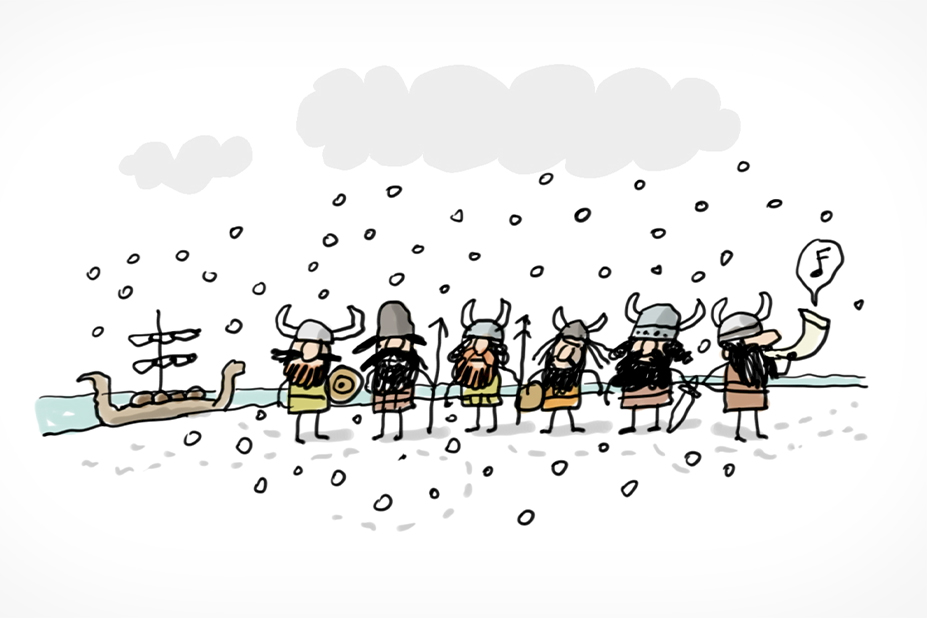In everyday language, the word Viking refers to the inhabitants of northern Europe, in the Scandinavian region, between the 8th and 11th centuries.
They spoke Old Norse, a language similar to Icelandic.
And, for a long time, they were known as the Northmen.
But why are we still talking about Vikings today?
At the time, Scandinavia was a very poor region, and the Vikings set off on expeditions to richer countries.
In fact, in Old Norse, Viking means « man who sets out on an adventure to seek his fortune ».
Excellent sailors, they reached as far as Russia and Ukraine, where they founded cities such as Novgorod and Kyiv…
… But also as far as the Mediterranean, Greece and North Africa. They also settled in Ireland, England, France and Iceland.





 Retour
Retour